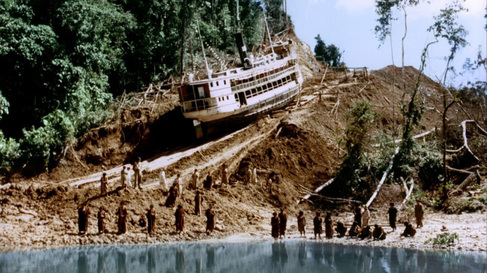 Les Blank's Burden of Dreams is an in-depth look at the filming of Herzog's Fitzcarraldo, an incredibly challenging production which found Herzog filming on location in the Amazon rainforest of Peru. While there have been many films and forays into capturing the filmmaking process, Les Blank's Burden of Dreams does so in a profound way, studying the eccentric Herzog as he fights tooth and nail for his vision, as everything around him seems to be crumbling apart. While Burden of Dreams does document the intricate details and many moving parts that go into making a major film production, the film's greatest strength is the way it captures Herzog as an artist, being borderline obsessive in nature - a perfectionist who has a very clear vision of exactly what he wants. As disaster after disaster plagues the set of Fitzcarraldo, Blank captures the toll it begins to take on Herzog the filmmaker, a man who would rather perish than give up his dream project. Dancing the line between art and megalomania, Burden of Dreams also captures the cultural pressures felt by Herzog, as he begins to become fearful that his filmset will infect the native culture of those people who are helping on the set. Herzog values the importance of leaving the land and its people exactly how he left it, which becomes increasingly difficult, the more the film spirals out of control under the weight of a host of troubling setbacks. Another interesting aspect is how Burden of Dreams has something to say about man's struggle with nature, capturing how the film productions' endless technology and resources were routinely thwarted by nature itself. It is a reminder of just how small and insignificant we all can be against the primal aspects of nature, with Herzog's cranes and labor struggling to succeed against the challenges of the jungle themselves. Certainly the gold standard when it comes to documentaries about the filmmaking process, Les Blank's Burden of Dreams captures the difficulty, abundance of moving parts,eye for detail, and toll on its creators a film like Fitzcarraldo can have.
0 Comments
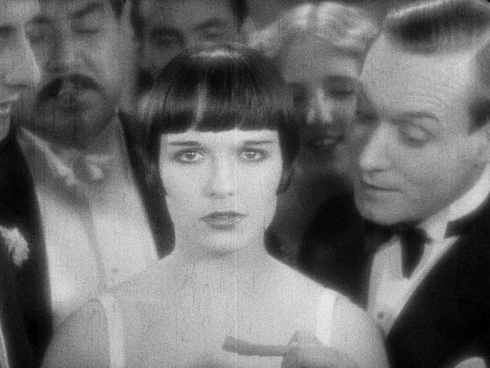 G.W. Pabst's Diary of A Lost Girl is a stunning melodrama of morality and perseverance, being a film of utter-darkness that ultimately finds the light. The film is centered around Thymian, a young woman who finds her life in disarray when her governess, Elizabeth, is thrown out of the house due to a discovered pregnancy only to be found deceased days later. Her father wastes no time finding a new governess in Meta, a woman who shows little moral sentiment. Thymiane finds herself pregnant due to Meta's lack of nurturing and straight-up deception, and when Thymiane refuses to marry the father of her child she is thrown into a strict reform school. Diary of A Lost Girl is a rather epic rags to riches story, a film of bleak narrative storytelling which inevitably leads to a powerful conclusion. The film's is a harrowing testament to the importance of love and kindness, using a circular narrative as a great device to illustrate how in life all of us are susceptible on some level to great heights and deep, dark low points in life. Pabst argues that love is the common denominator that should win out above all else, with the final line of the filming making a poignant statement - "If there was more love, no one would ever be lost. Pabst's Diary of A Lost Girl focuses on the bourgeoisie to make many of its points, showing how their selfishness and desire for money ultimately leads them down a path where they have very little love to share. This is perhaps best captured with the plight of Count Osdorff, a man who marries Thymiane after she escapes from the brother, only to eventually commit suicide himself when he learns that Thymiane has donated a vast amount of her inheritance to charity. Through this story Pabst captures how characters are always pining for the next dollar, defined by the allure it brings, and through centered around the bourgeoisie, Pabst's statement about greed and money's control over societies's intentions certainly speaks to everyone. One of my favorite scenes from both a technical and emotional perspective is when Thymiane sees her father at a party, unbeknownst to her that it will be the last time before his death. The sequence itself is shot in a very simple yet effective way, as Pabst uses shot reverse shot to reveal the intense sadness in Thymiane who simply pines for her fathers love, but more importantly the sequence is able to capture the glimpses of regret felt by her father. Featuring a stunning lead performance by the always expressive Louise Brooks, G.W. Pabst' Diary of A Lost Girl is a powerful melodrama about the importance of love in a world which often defines success by wealth.  Picking up several years after the events of the first film, which saw Mike leave the stripper game to pursue his true passion as a furniture designer, Gregory Jacobs Magic Mike XXL finds the remaining members of the Kings of Tampa also coming to the realization that it's about time they throw in the proverbial towel. Setting off on one last adventure, which includes them performing an epic final performance in Myrtle Beach, the guys hit the road, convincing Magic Mike to accompany them on one last adventure under the spotlight. While Gregory Jacobs' follow-up film may not feature the same subtlety, intelligence or darkness of its predecessor, Magic Mike XXL is a much more entertaining film than its predecessor, being a exuberant,boisterous film that feels far more comfortable being a celebration of feminine sexual desire that proudly encapsulates the 'entertainment' which male entertainers provide. Focusing on a lot of the same aspects of the first film, Magic Mike XXL doesn't have much new to say, but this film's upbeat, positive energy is refreshing, compared to the previous film's brooding narcissism, and I'd be lying if I said I wasn't entertained from start to finish. While Magic Mike XXL is not nearly as interesting from a direction or cinematography perspective, the film's story structure serves the overall concept much better, being a road movie where the audience follows these boisterous characters on a series of wacky adventures. The characters as a whole just felt so much more likeable in this version of the film, with the intention of Magic Mike XXL being much more about entertaining its audience. Regardless of Soderberg's impressive direction, I wasn't nearly as big of a fan of the first film as many, as I found it to take itself far too seriously. Luckily with Magic Mike XXL the film never seems to take itself too seriously, perfectly comfortable spending time with these outlandish characters who take off their clothes and gyrate for a living. Magic Mike XXL is essentially a bigger, more outlandish version of the original, and I'd be lying if I didn't say I found the whole finale highly entertaining. The individual dances of our five characters are often times impressive, but also outlandish and hilarious, with Channing Tatum's finale dance number being so agressive that I'm pretty sure it qualifies as sexual assault in some states. Featuring a much more loose, boisterous tone than its predecessor, Gregory Jacobs' Magic Mike XXL may be somewhat slight by comparison, but it's hard not to enjoy this unny road trip film about a host of characters who in many cases are still trying to find their own semblance of happiness as they come to terms with the fact that it's time to retire the thong. 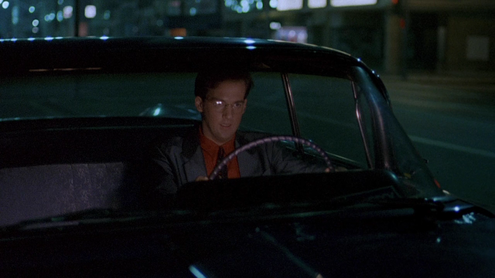 Steve De Jarnatt's Miracle Mile begins like many other romantic comedies, introducing us to its main protagonist, Harry Washello, a bashful, reserved character who has very little luck when it comes to woman. One day he meets Julie Peters, a waitress, and the two spend the day together, leaving Harry ecstatic, finally feeling that he met the woman of his dreams. One night while preparing to call Julie from a payphone, Harry intercepts a frantic call from a soldier stationed at a missile silo in North Dakota who explains that nuclear warheads have been launched, and its only 70 minutes to the end of the world. Steve De Jarnatt's Miracle Mile is indie filmmaking at its finest, being a film that uses a very simple narrative to offer up a nightmarish descent into the final hours of humanity. While many films subvert expectations, none pulls it off quite like Miracle Mile which begins as a believable, light-hearted, quirky comedy, only to descend into a terrifying vision of the darker side of humanity. Escalation is the name of the game with Miracle Mile's narrative, as chaos ensues around Harry as he desperately tries to find Julie before the end of the world. As the film progresses, things get darker and more chaotic, as nearly every character around Harry shows an inherent selfishness in this time of panic, offering up little kindness or empathy for their fellow man. Harry himself remains transfixed on finding and saving Julie, and this is the crux of the thematic weight of Steve De Jarnatt's film, as the filmmaker juxtaposes the love and kindness of Harry and Julie's relationship with the hatred and chaos of humanity around them. Using this couples frantic struggle to save their future, Miracle Mile becomes a film that beautifully encapsulates Cold War paranoia, showing how as the clock ticks down to zero how quickly humanity falls completely into depravity when the sense of safety and control crumbles during the threat of the end. At one point towards the end of the film Julie even asks Harry "people are going to help each other out, right?, a piece of dialogue that makes the filmmaker's intent quite clear. Telling a powerful and deeply nightmarish film in a very simple, yet effective way, Steve De Jarnatt's Miracle Mile offers fascinating questions about humanity and soceity in times of chaos, being a poignant reminder of the importance of kindness and love over all things. 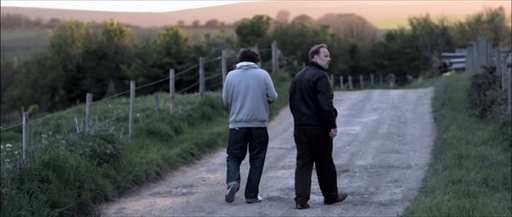 Ben Wheatley's Down Terrace follows Father and Son, Bill and Karl, who have just been released from prison. Returning to their small Brighton home, Bill and Karl have now set the sights on restoring a sense of order to their small crime family, one that has been plagued by minor disagreements, possible betrayal, and infighting since the two went to jail. Set almost entirely in one location, the small, cramped house of these two patriarchs of a crime family, Ben Wheatley's debut feature, Down Terrace is a unique crime caper which blends the hostility, violence, and unpredictability of the crime-family drama with the observant eye of a relationship drama, delivering a truly unique dark comedy that is an impressive calling card for the first time filmmaker. While Karl grows tired of his father's philosophizing and preaching, Bill finds Karl's dedication to the family business compromised when he decides to shack up with his estranged girlfriend, who claims to be pregnant with this son. As Karl and Bill attempt to find an informant which they believe has infiltrated their family business, the two find both their business and family unit itself spiraling further and further out of control. Bill and Karl are two characters who are running out of patience with each other, and one of Down Terrace most entertaining aspects is how it captures the temperament of these two characters, men who have incredibly short fuses when it comes to any minor inconveniences. Wheatley uses this combustible temperament to his advantage, delivering quite a few hilarious moments throughout the film, perfectly capturing how the powerful lifestyle of these individuals have essentially made them brats who can't even grasp the idea of things not going their way. It's very impressive how well Down Terrace blends kitchen-sink realism with black comedy, as Wheatley manages to deliver a film that is both extremely funny in moments while also offering moments of true poignancy. The crime aspects of the film never supersede the character development, a problem that is quite common in young filmmakers, but luckily Wheatley manages to balance the elements beautifully, making Down terrace an audacious debut feature that is both tense, funny, and engaging. 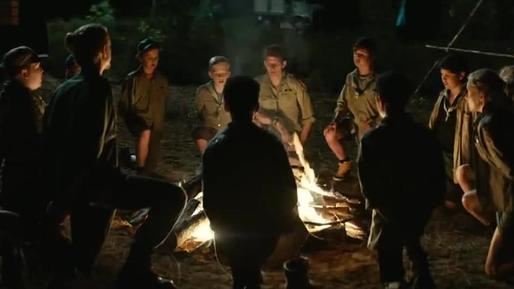 Jonas Govaerts' Cub is a grim, horror tale about a group of rambunctious scouts who finds their weekend in the woods turn deadly when they discover that they are being stalked in the woods by a violent, feral boy. The story is centered around 12-year-old Sam, a socially awkward member of the scout group who becomes infatuated with the local stories of this killer "werewolf boy". A loner who is routinely picked on by the other boys in the scout group, Sam spends much of his time alone in the woods, where he begins to catch glimpses of something in the wilderness watching over their camp ground. As Sam begins to realize that Kai, a violent, feral boy may be the one behind the local legend, his attempts to warn his fellow scouts fall on deaf ears, leading to further carnage and an increasing body count. Jonas Govaert's Cub is a Belgian horror film which is best described as some twisted combination of Jeff Lieberman's Just Before Dawn and Home Alone, having a decent amount of ingenuity but unfortunately failing to deliver a true sense of atmosphere and terror. Cub's horror and violence should appease many junkies of the genre, but the films cynical viewpoint on humanity is what stands out, being a very grim tale of a young boy's transformation into a monster. As its story progresses, it becomes clear that Sam and Kai, the feral child, have more in common than meets the eye, each being outcasts from society in one way or another. Sam has never fit in among the other scouts and even finds himself tormented by one of the scout leaders, and his budding relationship with Kai offers up a very twisted story of acceptance, which inevitably leads Sam towards a similar path of violence and brutality, as it becomes one of the only things which Sam is familiar with. The film's psychology isn't exactly profound but it's somewhat compelling, as by the end of the film Sam has transformed into a brutal character himself, with the filmmakers using this character to make a slight, albeit important statement of the importance of nurturing young, impressionable individuals. While Cub wasn't quite the brooding, atmospheric horror film I was hoping for, the film's unique narrative and compelling setting make it a solid entry in the horror genre. 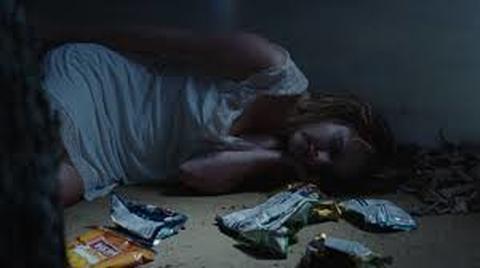 Alex Ross Perry's Queen of the Earth tells the story of Catherine, a woman who is dealing with a lot of personal tragedy in her life. Her father, a famous artist, has recently died, and Catherine is still dealing with the recent break-up from her longtime boyfriend James. In an attempt to escape, Catherine heads to her best friend Virginia's lake house for relaxation, but unfortunately this proves impossible due to Virginia's inability to be there for her friend. Featuring a tour-de-force performance by Elizabeth Moss, Alex Ross Perry's Queen of Earth is the young filmmakers most impressive film to-date, an intoxicating fever dream of a film that uses a simple story to touch on profound insights into humanity, dependency and relationships. At its core, this is a story of emotionally broekn woman, capturing how their own inability to cope with their troubles leads to hostility and psychological abuse. Catherine is a character who is struggling to find happiness due to her issues of dependency, whether it be from her father who employed her or her long time boyfriend who recently broke up with her, Catherine is the perfect representation of importance being a strong independent individual who doesn't rely on outside influences. The longer Catherine stays with Virginia the more she begins to psychologically unravel, and Queen of Earth is a great reminder of the power atmospheric filmmaking can have, something which more often than not is strictly a bi-product of the horror genre. Queen of Earth is grade A filmmaking, essentially taking a very simple break-up story and turning it into an impressive psychological horror film that feels more like a mood piece at times than a narrative (yes, that's a good thing). The film is moody and bizarre, but underneath this atmospheric tale lies a ton of honesty and truth about individuals and relationships, capturing the conflicting emotions which exist in every breakup, where loneliness and unhappiness can create a biased perspective of how an individual see others and the world around them. While an impressive film from nearly every technical perspective which exists in filmmaking, Queen of the Earth's greatest aspect is how it captures the inherent selfishness of humanity through the characters of Catherine and Virginia, two woman who themselves have a hard time being thoughtful and caring to each other due to being constantly wrapped up in their own self interests. They are friends, but they are never truly there for each other when desperately needed, which in turn leads to increased angst and strife in their relationship. Queen of Earth is a beautifully acted, impressively directed, fever dream of selfishness and despair, capturing humanities built-in selfishness in a profound and interesting way, being simply the latest reminder of why Alex Ross Perry is one of the most fascinating and unique young filmmakers working today. 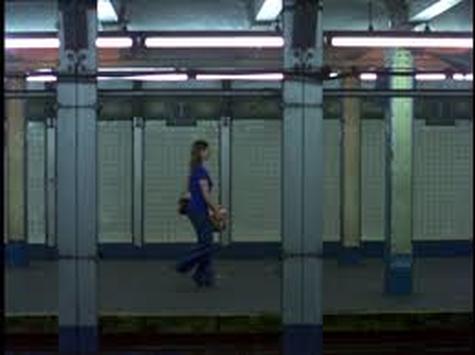 Chantal Akerman's News From Home is an enchanting and deeply personal piece of filmmaking which profoundly explores the isolation and alienation felt by its filmmaker. Chantal Akerman, a belgian filmmaker, left home when she was twenty to pursue filmmaking, and with News From Home she has put together a beautifully realized experimental documentary that interweaves the vast sights and sounds of New York City with the letters from her loving mother, who desperately misses her daughter. A film about urban life, loneliness, isolation, and the need for independence, News From Home is a mosaic of images, colors, and sounds that is both deeply personal and universally profound. Experiencing News From Home is much like experiencing a bunch of great painting, as every composition throughout the film's running time elicits some sense of emotion from the viewer. Isolation is probably the film's most forward boding emotion, as Akerman captures desolate streets which only seem to be inhabited by the cold steel of cars that venture down boulevards and avenues. The human experience of urban life is captured in such an interesting way, with compositions that routinely entrap the subjects in the frame, offering us a proverbial window into these indivduals' experiences that simultaneously cages them, creating a sense of alienation. While these images are perfect for capturing the isolation and alienation which the filmmaker is going through, even the compositions full of people tend to show very little communication, interaction, or emotional contact, as Akerman effectively captures how even the busiest city in the new world is full of many lonely, isolated individuals. The letters themselves, read back to us by Akerman as she juxtaposes images of New York, offer unique insights into her own relationship with her mother, as her parental figure uses loving but manipulative language that almost seems to attempt to guilt Akerman into returning home to her family. Perhaps my favorite shot is the final one, which takes place on a boat going out to sea during a foggy day. As the boat slowly drifts further out to sea, New York City becomes its own alienated structure alone in a sea of dense fog, a poignant visualization of the inner-turmoil and alienation felt by Akerman. Chantal Akerman's News From Home is a film that is only going to be enjoyed by more adventurous art-house viewers, but for those willing, the film offers a deeply profound portrait of alienation, capturing a woman in Akerman who is simply trying to create her own place in the world. 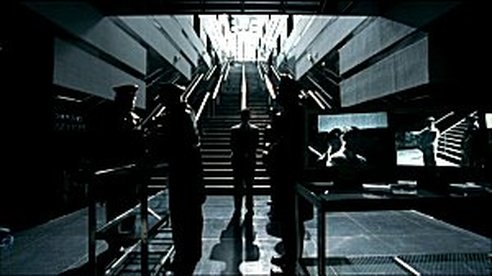 Vincenzo Natali's Cypher is a fast-paced, convoluted, low-budget science fiction film full of twists and turns, but unfortunately the film's thematic ideals are never quite capable of keeping up with the film's more impressive technical side. The film tells the story of Morgan Sullivan, a man who has just accepted a job as an industrial spy at Digicorp, one of the leading computer corporations in the world. Hoping for a more exciting profession, Morgan finds himself on the road constantly, sent to various conventions, being tasked with documenting the speeches. After meeting a mysterious woman named Rita, Sullivan begins to realize his job isn't exactly what the thought it was, as he has accidentally ventured into a dark world of corporate espionage where brainwashing and identity swapping have become common practices. Considering the low-budget of Cypher, Vincenzo Natali has created an impressive world for these characters to inhabit, giving the film a believable vision of the future which feels very much in the same vein as Philip K. Dick. In fact, the visual aesthetic of Cypher, along with skilled direction, is by far the strongest aspect of the film, as Natali uses tight compositions and fish eye lenses that combine to give the whole film another level of tension, paranoia, and claustrophobia, as his main protagonist Morgan, falls deeper and deeper into the mysterious world of corporate espionage. Cypher does an effective job at transporting the viewer into the mindset of Morgan, a man who begins to feel he is being watches, forever unsure of who could be trusted. I particularly liked how Natali uses lighting and shadows to amplify aspects of the unknown, often using shadows to make various faces unidentifiable to the viewer or the main protagonist, given the whole film a feeling of mystery and tension, as one can't help but always feel like Morgan is being watched by some mysterious presence. The narrative itself is somewhat compelling but I'd be lying if I didn't say it gave me whiplash, as Cypher relies on a snowball of revelations, twists, and turns, to keep its narrative going in a way that at times makes you wonder what the hell Natali is trying to say. With the way its main protagonist is caught between two huge corporations, being pushed and pulled at every turn, Vincenzo Natali seems to have something to say about corporate America, displaying the decreasing value of the employee, as Morgan is used and abused by his superiors for their own corporate gains. Featuring a narrative that borders on silliness at times and themes which don't feel developed or nuaunced enough to have much of an impact, Cypher is a film that never manages to break out, but given the impressive aesthetic and direction of Cypher, it's still worth a watch for any fans of the science fiction genre. 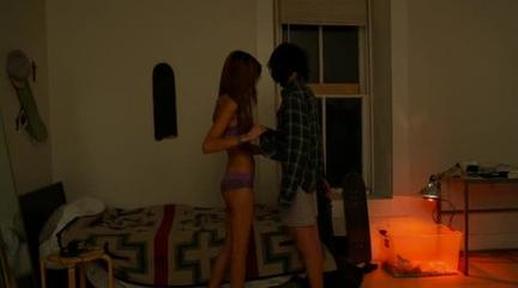 Larry Clark's latest film, Marfa Girl, takes place in the small border town of Marfa, Texas, following the exploits of Adam, a directionless 16 year-old whose apathy for everything around him has left him cold and distant. Following the exploits of Adam, his teenage girlfriend, a high school teacher, and a border patrol agent, Larry Clark's film is a flawed albeit fascinating portrait of a working class border town. Anyone familiar with Larry Clark's work should know what they are getting into with Marfa Girl, as Clark's infatuation with using teenage sexuality is very much intact. Clark never holds much back in depicting the budding sexuality of his young characters, as if he views sex as one of the few universal truths of humanity. While the film does touch on the relationship between love & sex and the confusion which exists between the two, Marfa Girl's penchant for explicit content ends up distracting from the films ability to say so much more about this impoverished, rural community, disabling the film from touching on its more interesting elements. All of Larry Clark's films are oddly compelling at times, with Marfa Girl's strengths lying in its ability to examine the humanistic qualities of its ensemble cast, capturing some profound insights into human nature and relationships. Marfa Girl is a film that truly believes that humanity is kind-hearted and good-natured, arguing how experiences are often what shape us into how society perceives us. There is no better example of this than the misogynstic, deeply-disturbed border patrol character, a man who we eventually learn has been shaped into a monster due to his dark childhood. While the scene where he reveals his childhood issues feels hamfisted and forced, the scene is important in humanizing this character, letting the viewer understand that he was shaped into this monster by a father who showed little empathy. Another scene which I thought was very compelling is a sequence between a border patrol officer and a young artist, who exchange in a verbal argument about the value of their respective professions. Through this small sequence Clark speaks to how society is quickly to criticize and judge without ever attempting to fully understand where someone is coming from, with the young artist lacking the overall worldview to understand the complications of life. While the film has moments of great truth and poignancy about life, humanity, and growing up, Marfa Girl unfortunately becomes too distracted with Clark's need to inject an unnecessary amount of sexuality into the film to make it truly special. Larry Clark's Marfa Girl is a scattered film full of interesting ideas and themes, being too focused and uneven to ever fully develop itself as a study of humanity and the judgmental tendencies of society. |
AuthorLove of all things cinema brought me here. Archives
June 2023
|
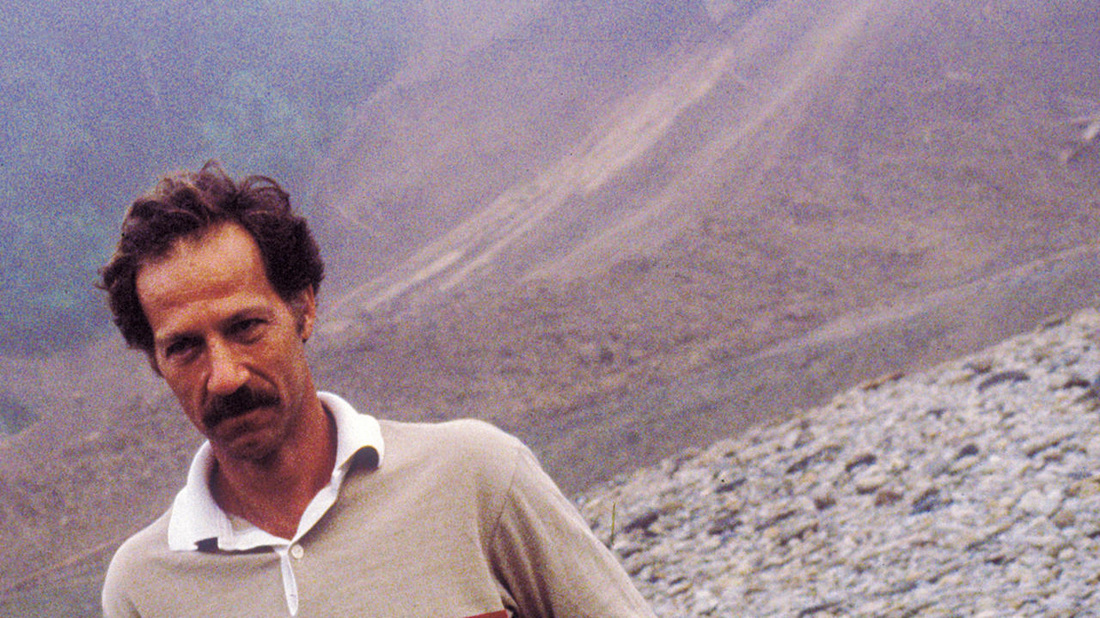
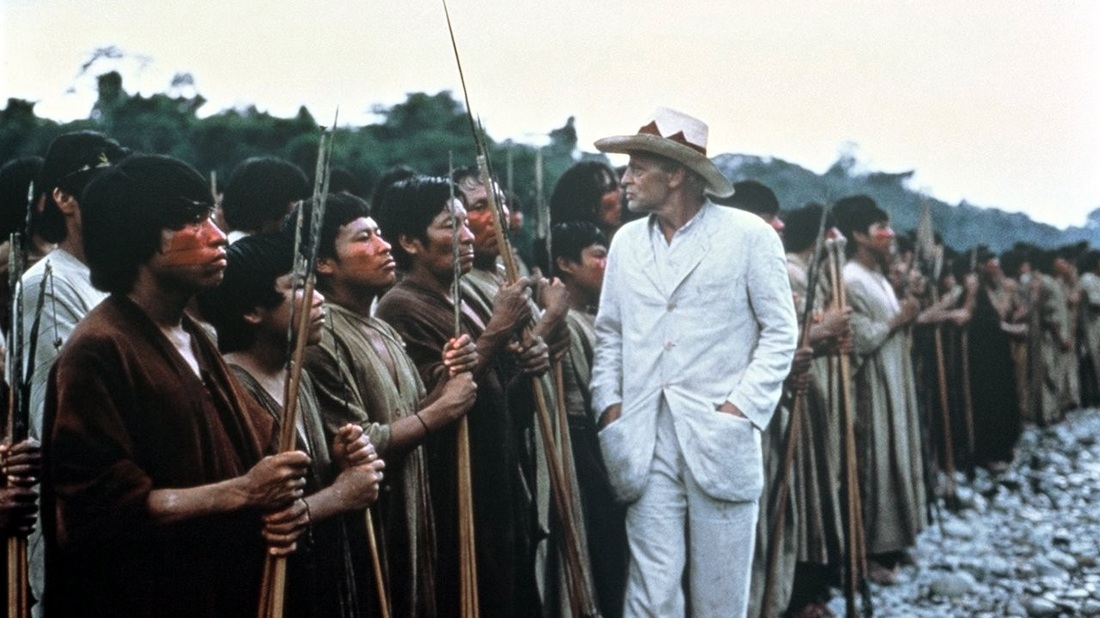

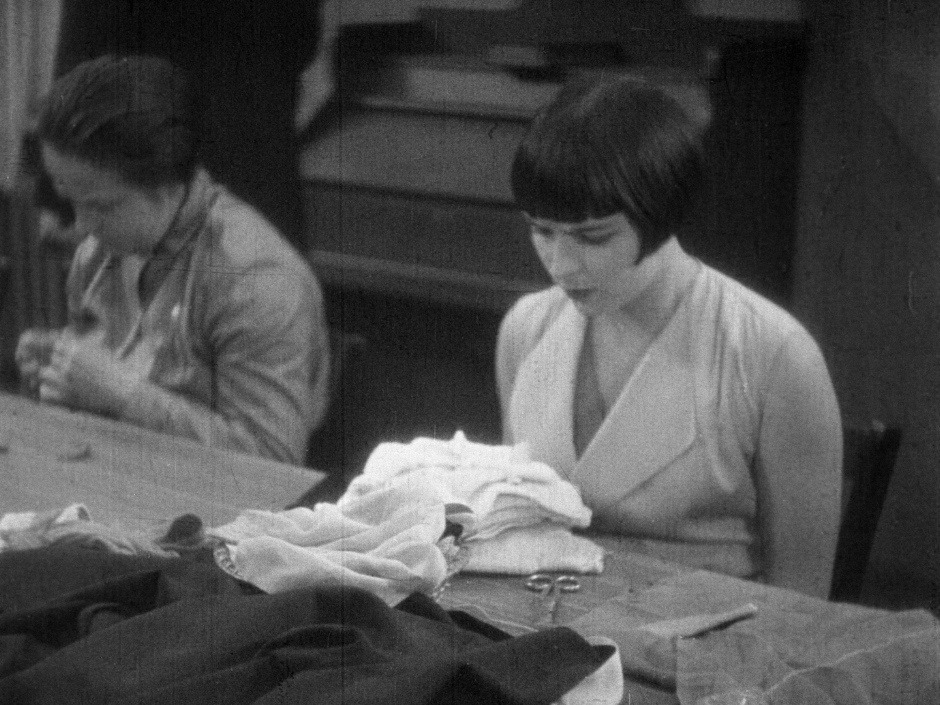
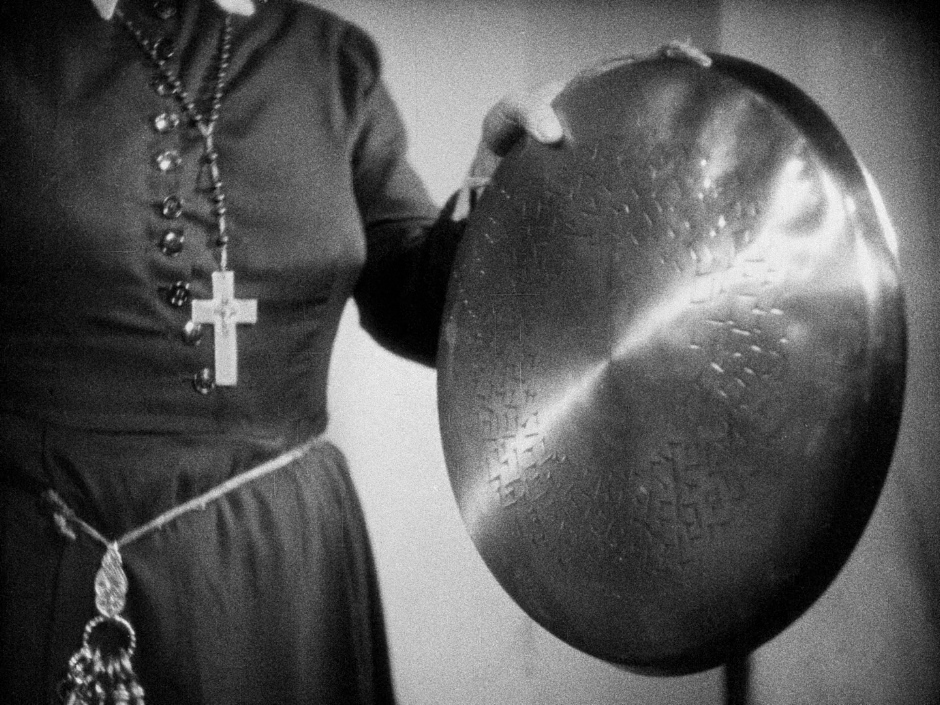
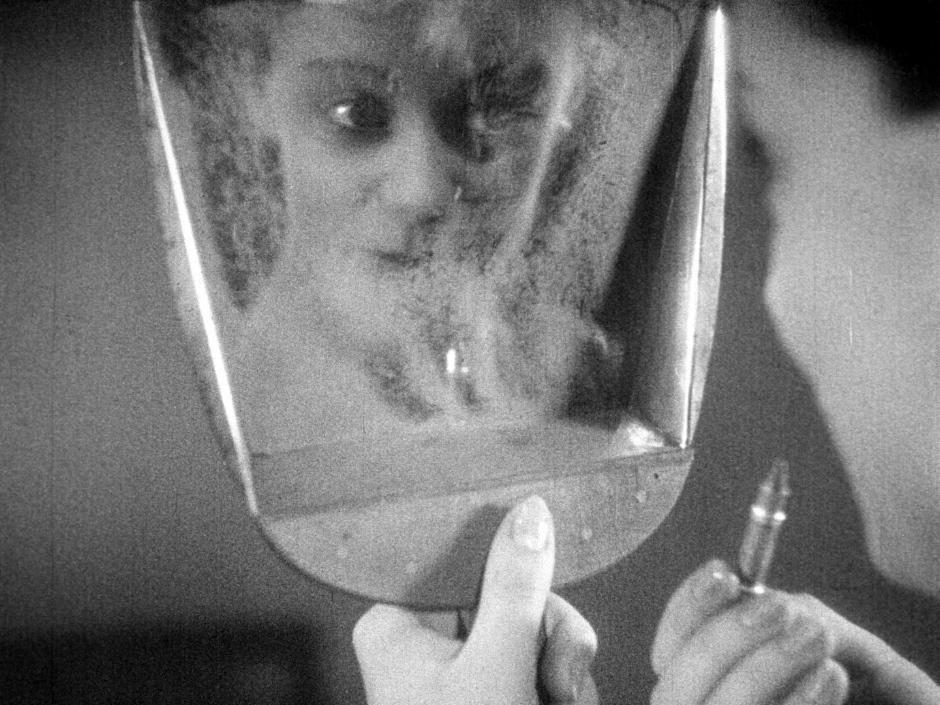
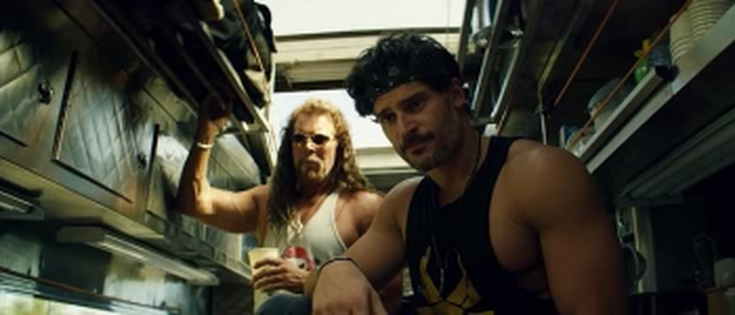
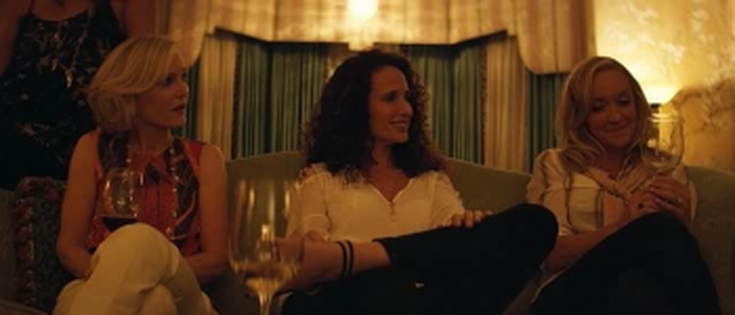
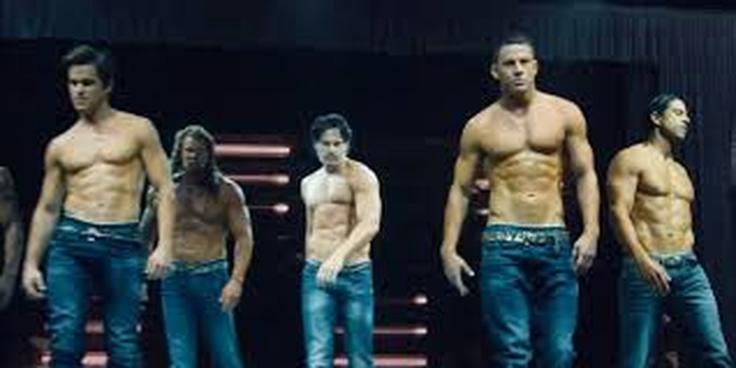
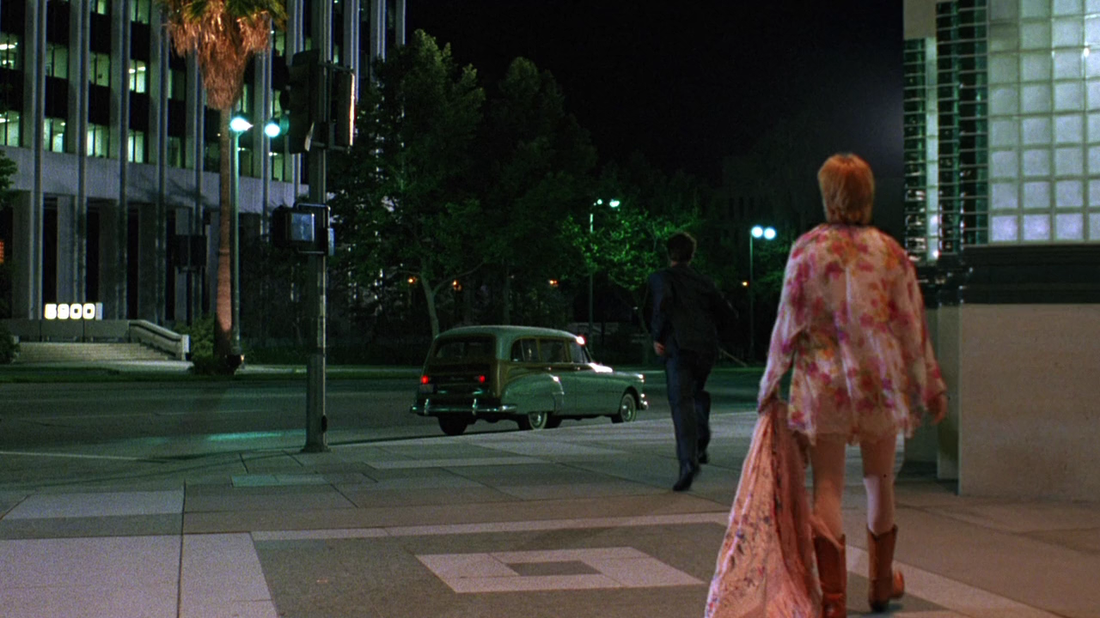
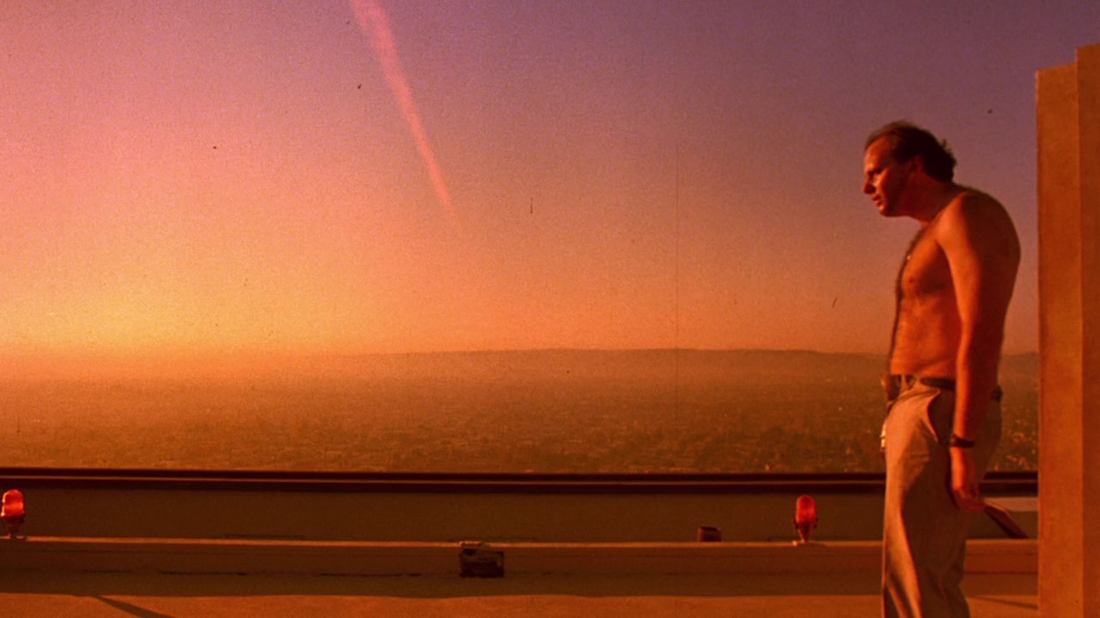
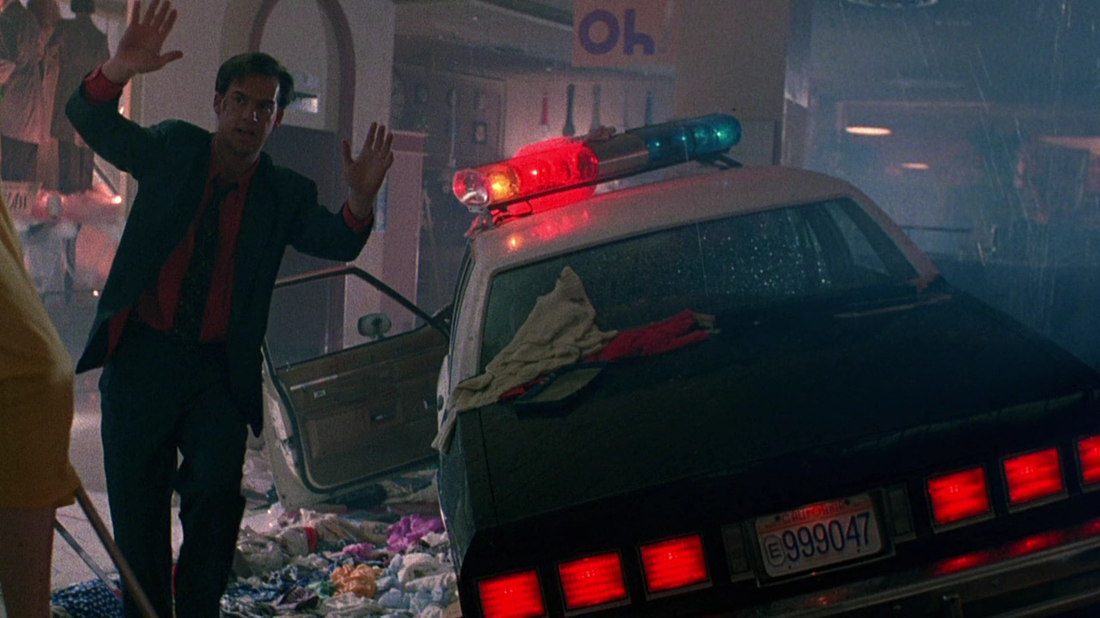
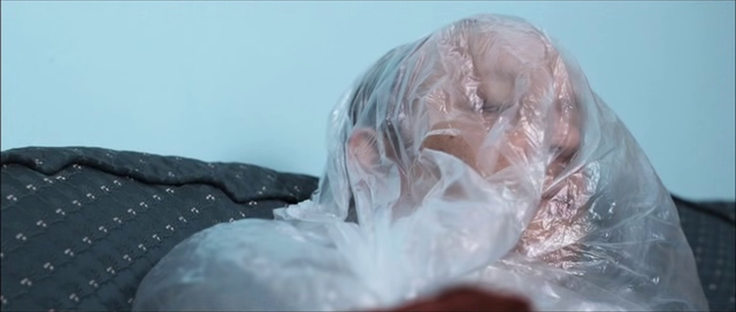

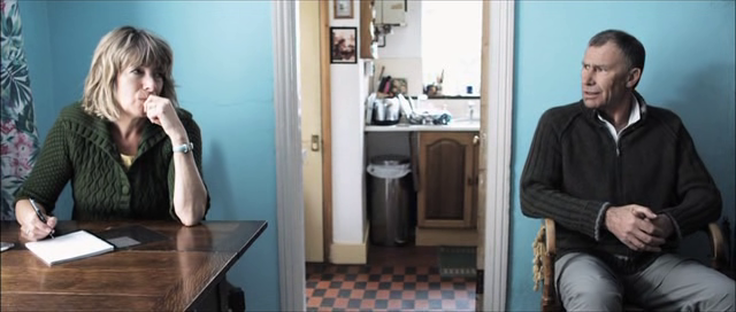
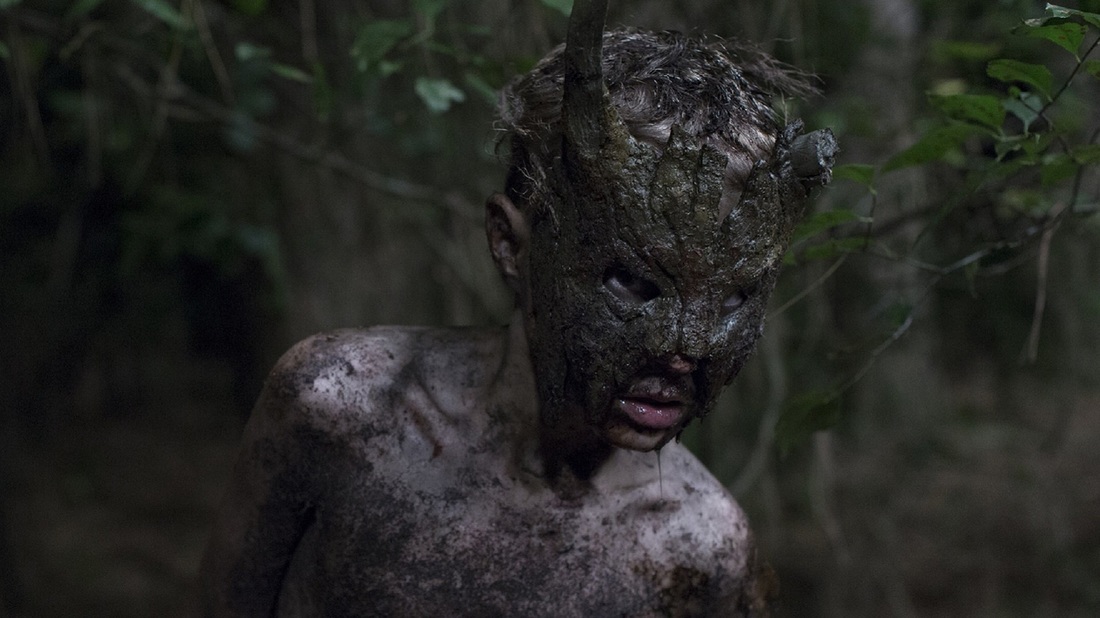
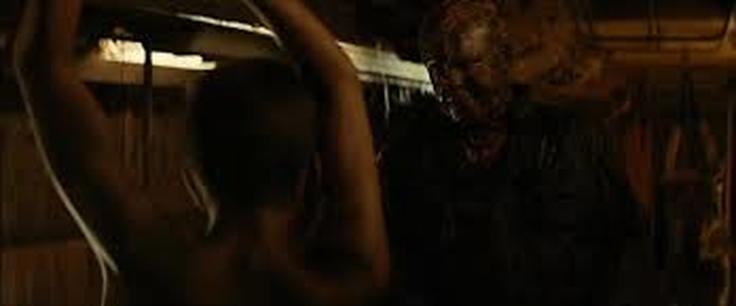
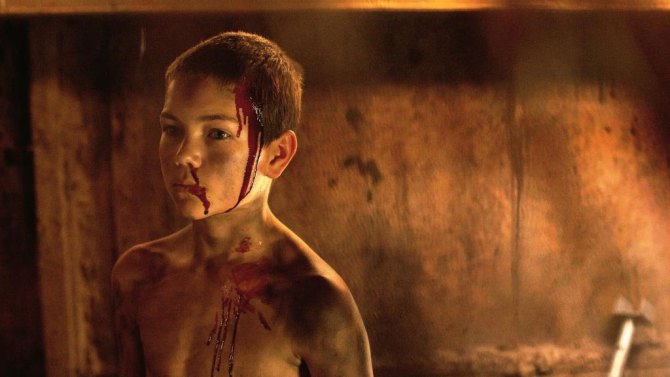
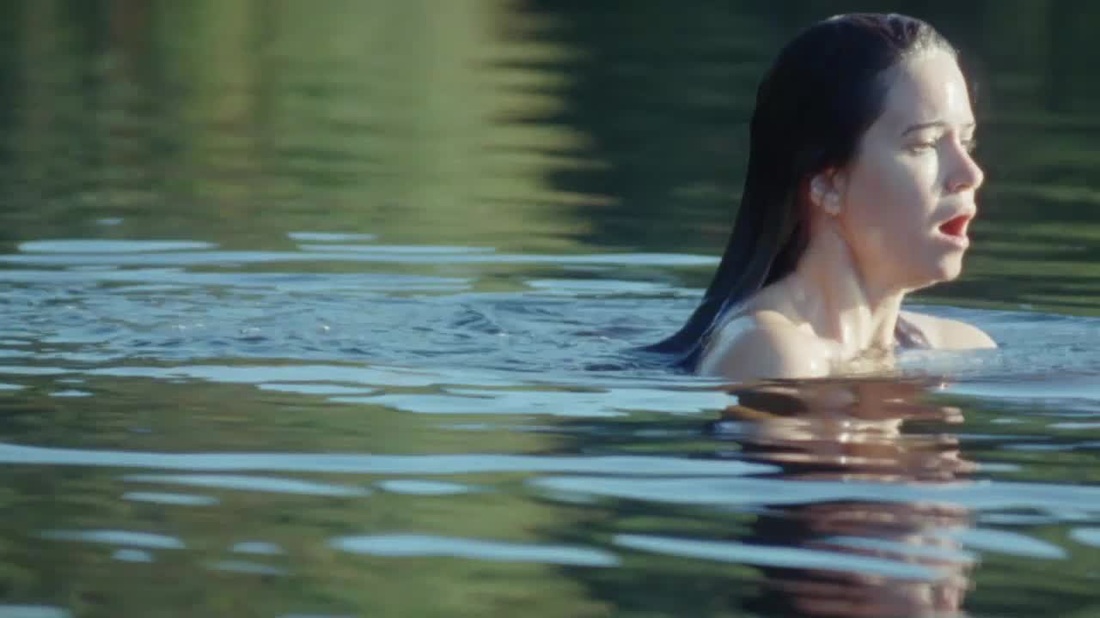
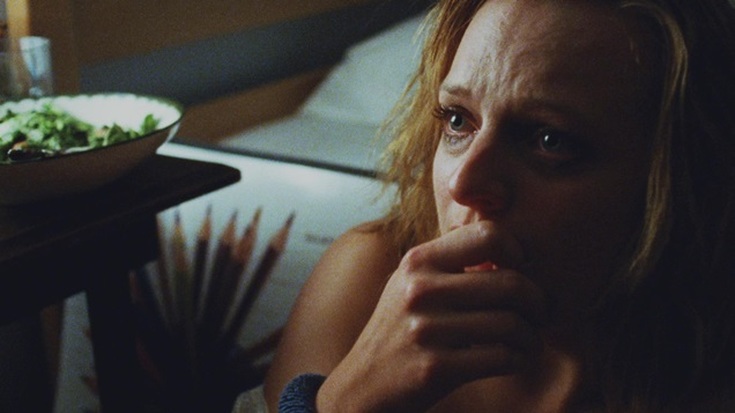
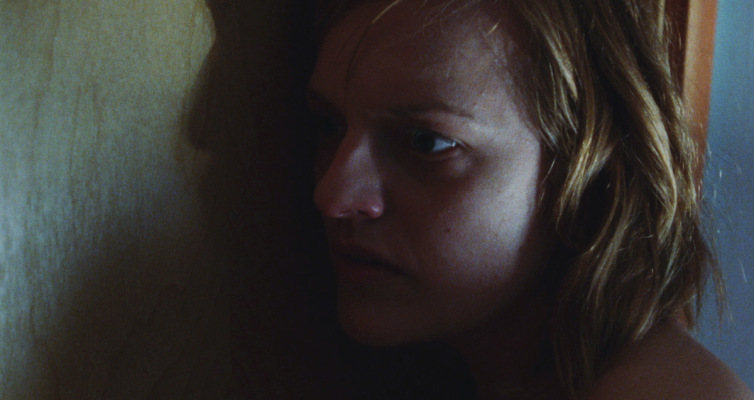
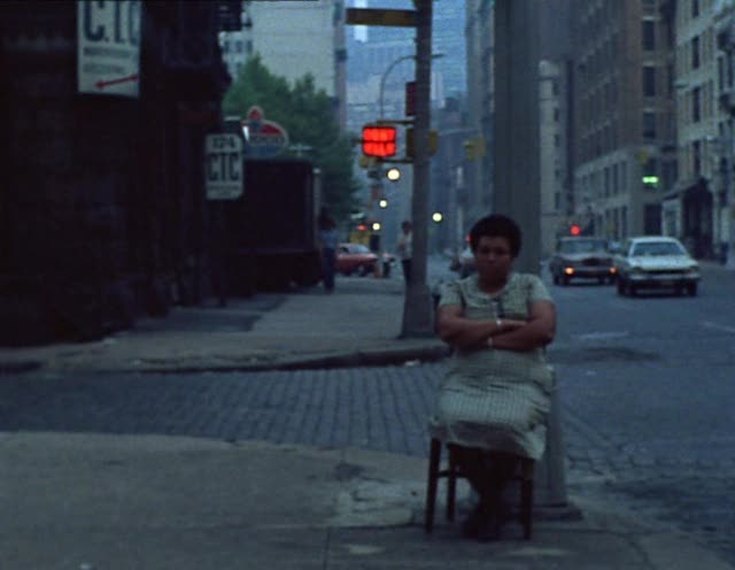
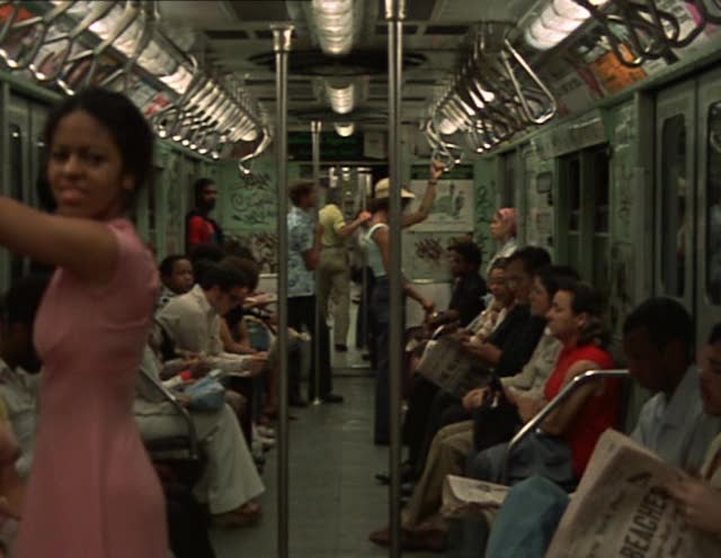
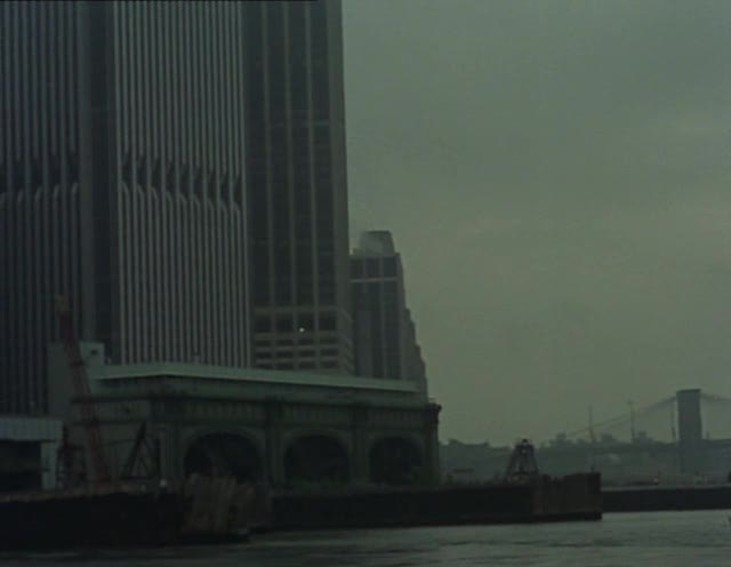
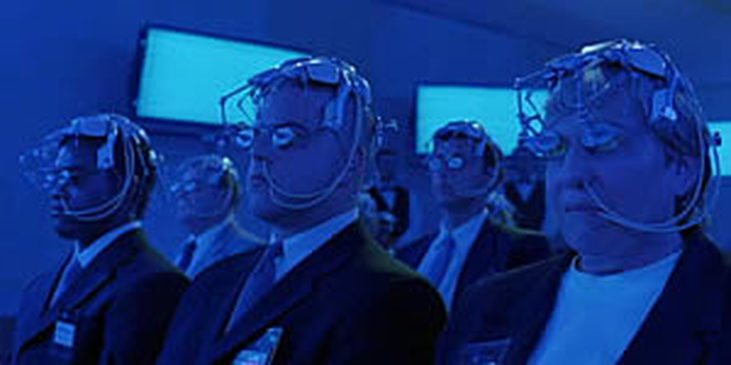
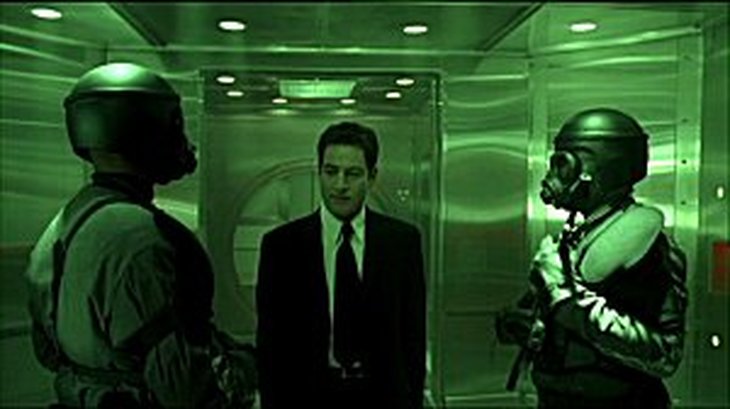
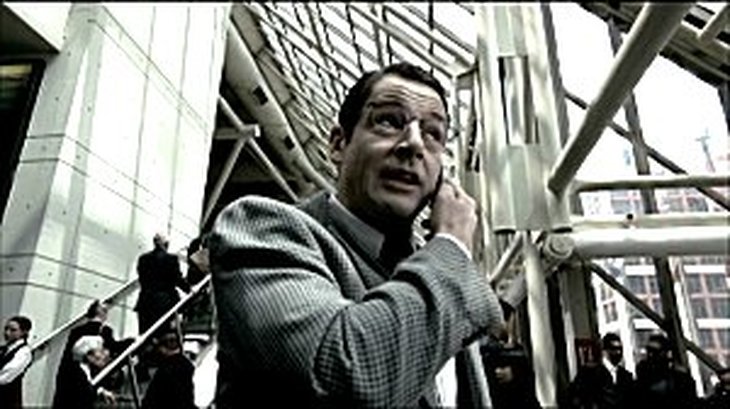
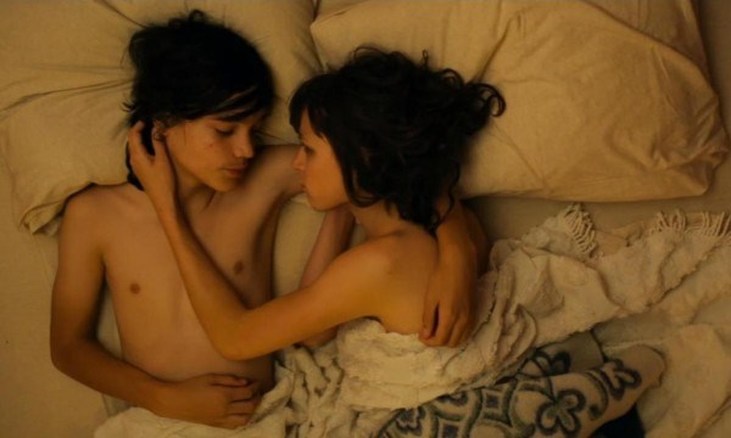
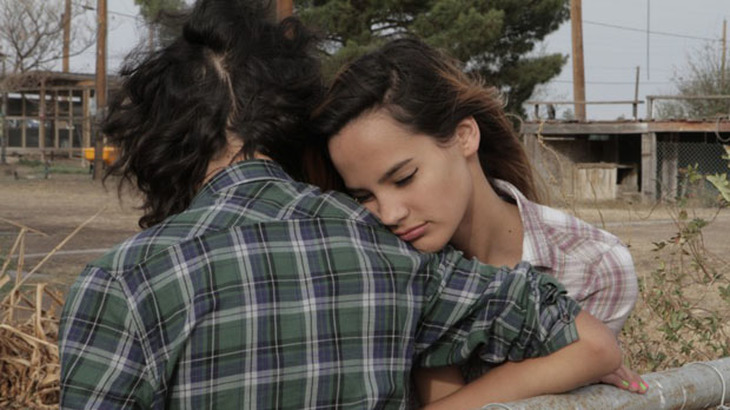
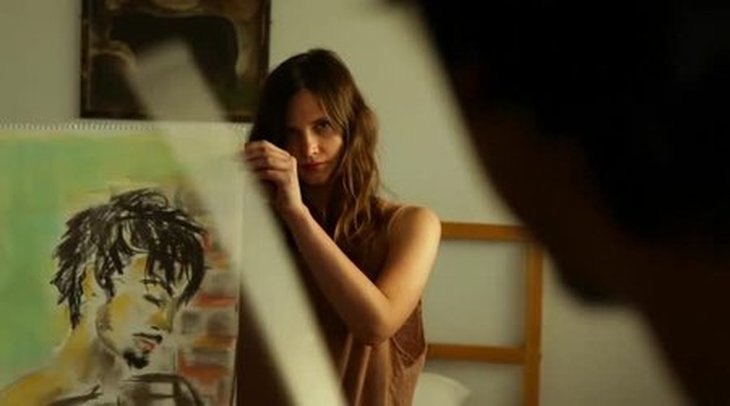
 RSS Feed
RSS Feed
